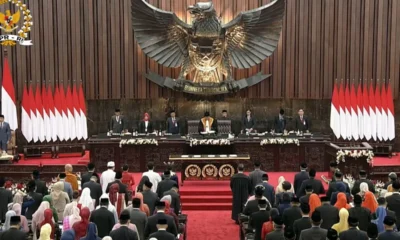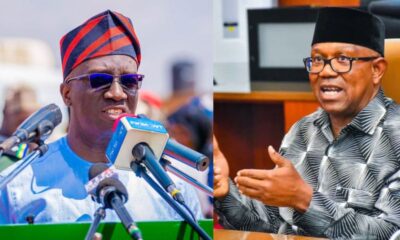Africa
Nigeria’s Leadership Crisis and Why Peter Obi is the Best Option for 2027 -By Jeff Okoroafor
Nigeria does not need another “politician as usual.” It needs a leader who can inspire confidence, restore hope, and lay the foundation for sustainable development. Peter Obi has shown, through his record and his ideas, that he is that leader.

Nigeria, Africa’s most populous nation and largest economy, remains a paradox of immense potential and perpetual underachievement. Despite its vast natural resources, a vibrant youth population, and strategic geopolitical importance, the country continues to grapple with systemic failures—poor governance, economic instability, insecurity, and widespread corruption. The root cause of these problems lies in the failure of leadership.
For decades, Nigeria has been governed by leaders who prioritize personal and political interests over national development. The ruling class, largely recycled across different administrations, has perpetuated a culture of impunity, mismanagement, and short-term thinking. The result is a nation where over 133 million people live in multidimensional poverty, where unemployment and inflation have reached alarming levels, and where basic infrastructure—electricity, healthcare, and education—remains in a deplorable state.
Nigeria’s leadership crisis is not just about individuals but about a broken system that rewards mediocrity and political patronage over competence and vision. Successive administrations have failed to:
- Diversify the Economy – Over-reliance on oil has left Nigeria vulnerable to global price shocks, with little investment in agriculture, manufacturing, and technology.
- Tackle Corruption – Despite grand declarations, corruption remains endemic, with public funds routinely siphoned by political elites.
- Ensure Security – From Boko Haram to banditry and separatist agitations, insecurity has worsened, displacing millions and crippling economic activities.
- Provide Basic Infrastructure – Nigeria still lacks stable electricity, good roads, and functional healthcare, driving businesses and professionals abroad.
The current administration under President Bola Tinubu has so far failed to inspire confidence. The abrupt removal of fuel subsidies without adequate mitigation plans, the floating of the Naira (leading to its catastrophic devaluation), and the continued borrowing spree suggest a government that is either out of touch or unwilling to make the tough, strategic decisions needed for long-term growth.
Why Peter Obi Stands Out
In the midst of this leadership vacuum, Peter Obi represents a clear alternative—a leader with a proven track record, a commitment to good governance, and a clear vision for Nigeria’s future. Here’s why he remains the best option for 2027:
1. Proven Economic Management
As governor of Anambra State (2006–2014), Obi demonstrated exceptional fiscal responsibility. He left N75 billion in savings for his successor, cleared huge debts, and invested in critical sectors without borrowing recklessly. Under his watch, Anambra became one of the few states that consistently topped education performance rankings.
2. Anti-Corruption Credentials
Unlike many Nigerian politicians, Obi has no corruption scandals. His frugal and transparent governance style in Anambra—where he refused to loot public funds—shows he can be trusted to tackle Nigeria’s corruption epidemic.
3. Focus on Human Capital Development
Obi understands that Nigeria’s greatest resource is its people. His campaign in 2023 emphasized education, healthcare, and youth empowerment—key areas neglected by successive governments.
4. A Unifying Figure
In a nation deeply divided along ethnic and religious lines, Obi’s broad appeal across regions makes him a rare unifying candidate. His message of “moving Nigeria from consumption to production” resonates with millions tired of tribal politics.
5. A Clear, Practical Vision
Unlike many politicians who rely on empty rhetoric, Obi has consistently presented a detailed policy framework—from his “7-Point Agenda” to his emphasis on shifting Nigeria to a productive economy. His understanding of global economics and governance sets him apart.
For Nigeria to escape its current trajectory, it must break from the cycle of recycled leadership and embrace a leader with competence, integrity, and vision. Peter Obi represents that break.
The 2023 elections, despite their controversies, proved that Nigerians—especially the youth—are hungry for change. The movement behind Obi was organic, driven by citizens tired of the old order. By 2027, this momentum must be strengthened with better strategy, broader alliances, and unwavering commitment to electoral integrity.
Nigeria does not need another “politician as usual.” It needs a leader who can inspire confidence, restore hope, and lay the foundation for sustainable development. Peter Obi has shown, through his record and his ideas, that he is that leader.
The 2027 election is not just another political contest—it is Nigeria’s chance to choose between continued decline and a new path of progress. The choice is clear: Peter Obi remains the best option for a better Nigeria.
Jeff Okoroafor is a social accountability advocate and a political commentator focused on governance, accountability, and social justice in West Africa.




























